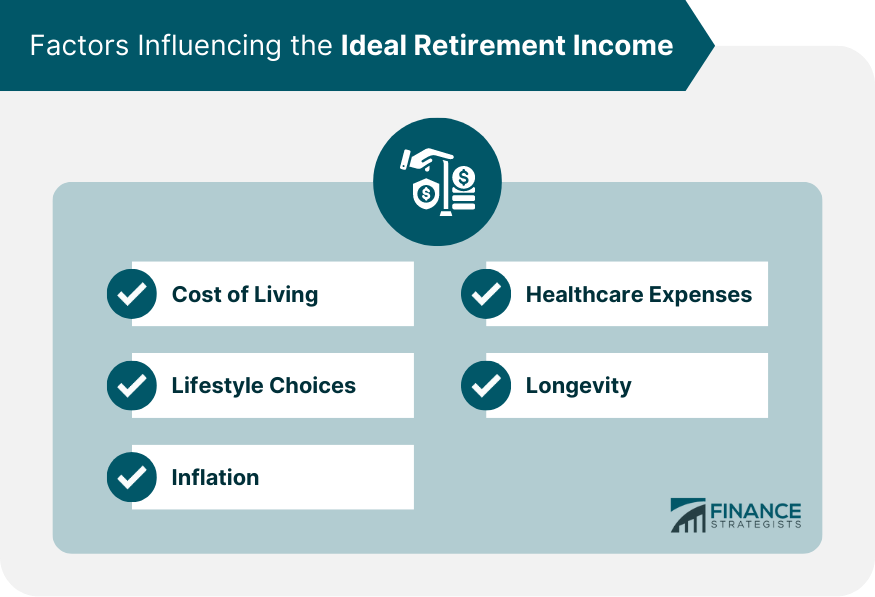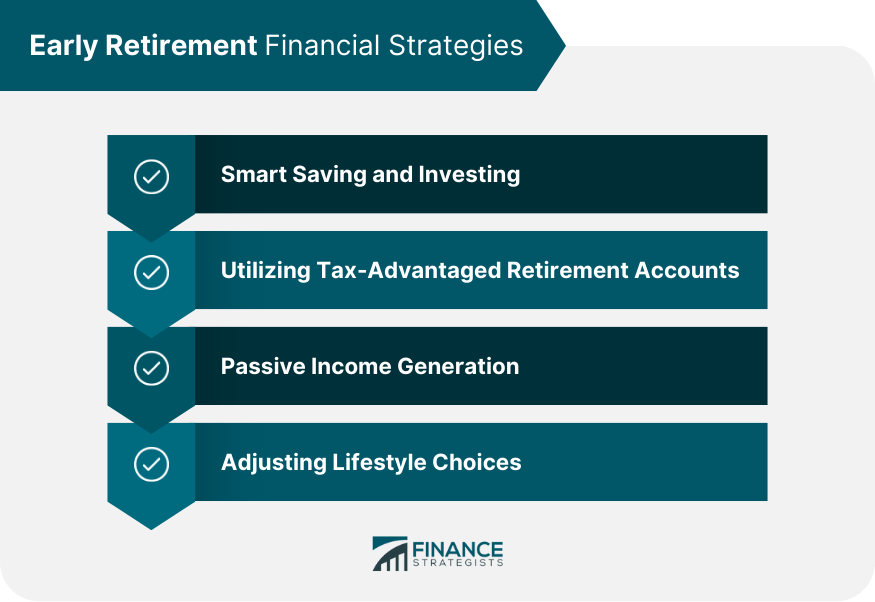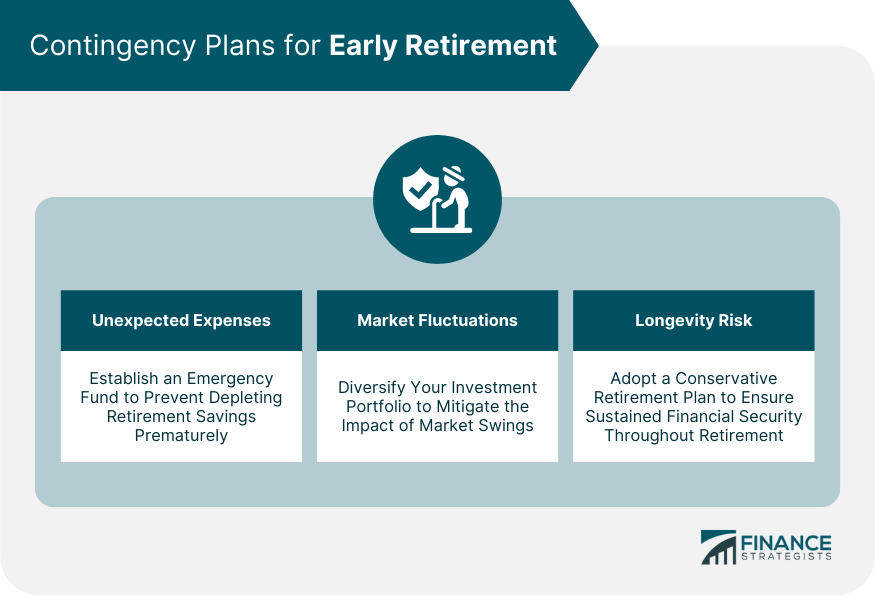The ideal income to retire early varies widely from person to person. It depends on a variety of factors, including your expected lifestyle in retirement, where you plan to live, anticipated healthcare costs, and how long you expect to live. A common method to estimate this ideal income is using the 4% rule (also known as the Safe Withdrawal Rate), which suggests that you should plan to withdraw 4% of your retirement savings each year. Alternatively, the 25x rule can be used to determine the total amount you'll need to be saved by the time you retire. This rule suggests that you should aim to accumulate at least 25 times your anticipated annual expenses in your retirement savings. However, these rules are just guidelines. You'll need to adjust based on your personal circumstances and financial goals. Consulting with a financial advisor can provide more personalized advice tailored to your situation. Cost of Living: Where you live significantly impacts your retirement income needs. Areas with higher living costs require a larger retirement fund. Lifestyle Choices: Your chosen lifestyle plays a major role. More luxurious or active lifestyles involving travel or hobbies necessitate a higher retirement income. Inflation: Over time, inflation erodes purchasing power. It's crucial to account for inflation when calculating your retirement income to ensure your savings maintain their value. Healthcare Expenses: As one ages, healthcare costs typically increase. Proactive planning for these expenses can prevent them from draining your retirement savings. Longevity: The longer you live, the more money you will need. Given advances in healthcare, many people live 20-30 years or more in retirement, increasing the necessity for a substantial retirement income. To retire early, diligent saving and investing are essential. It's necessary to accumulate a significant nest egg. Saving allows you to accumulate capital, and investing allows your capital to grow over time. Tax-advantaged retirement accounts, like 401(k) plans or IRAs in the United States, should be utilized to their full extent. Contributions to these accounts are often tax-deductible, and the investments grow tax-free until retirement. Passive income can be a vital part of an early retirement strategy. This could come from rental properties, dividends from investments, or a side business. It provides an income stream without active work, complementing your retirement savings. Consider ways to reduce your living costs, such as downsizing your home or moving to a lower-cost area. These changes can reduce the amount you need to save and help you reach your retirement goal sooner. The inevitability of unexpected expenses underscores the importance of creating an emergency fund as a financial safety net. Whether these unanticipated costs arise from essential home repairs, urgent medical needs, or providing financial aid to a family member, having a dedicated reserve fund can prevent you from depleting your retirement savings prematurely. Economic cycles can cause fluctuations in investment returns, which can substantially impact your retirement portfolio. It is imperative to account for these potential market swings in your retirement plan. A diversified investment portfolio is one effective way to mitigate such risks, providing a balance that can endure varying economic climates. Early retirees face the considerable challenge of longevity risk - the prospect of outliving their retirement savings. To guard against this, adopting a conservative approach to retirement planning is crucial. This involves a thorough evaluation of your spending habits, expected lifespan, and potential future expenses, thereby ensuring your retirement savings can sustain you throughout your life. Remember, the goal isn't just to retire early but to retire securely. Many early retirees find that downsizing their lives is key to achieving their goals. This could mean moving to a smaller home, reducing discretionary spending, or eliminating debt. Moving to a city or country with a lower cost of living can dramatically reduce expenses, making early retirement more achievable. This could mean moving to a different part of your own country or considering international options. Even in retirement, some people choose to work part-time or freelance. This can provide extra income, reduce the amount you need to withdraw from your savings and offer an opportunity to stay engaged and active. Reaching the ideal income to retire early requires thoughtful planning and strategic financial moves. Both the 4% rule and 25x rule serve as benchmarks to gauge retirement savings, yet customization to personal circumstances remains essential. Factors such as cost of living, lifestyle preferences, inflation, healthcare expenses, and longevity significantly influence retirement income needs. Crucial strategies for achieving early retirement include diligent saving and investing, maximizing tax-advantaged retirement accounts, and generating passive income. Adapting lifestyle choices, such as downsizing or moving to lower-cost areas, also plays a pivotal role in achieving financial goals. Contingency planning is essential to counter unexpected expenses, market fluctuations, and longevity risks. Consider part-time work or freelancing as additional avenues to remain financially secure and active. Remember, achieving early retirement is a marathon, not a sprint, requiring time, discipline, and persistence.Understanding the Ideal Income to Retire Early
Have questions about retirement planning? Click here.Factors Influencing the Ideal Retirement Income

Early Retirement Financial Strategies
Smart Saving and Investing
Utilizing Tax-Advantaged Retirement Accounts
Passive Income Generation
Adjusting Lifestyle Choices

Contingency Plans for Early Retirement
Unexpected Expenses
Market Fluctuations
Longevity Risk

Adjusting Lifestyle to Meet Ideal Retirement Income
Downsizing and Simple Living
Exploring Low-Cost Locations for Living
Part-Time Work or Freelancing
Conclusion
Ideal Income to Retire Early FAQs
The ideal income to retire early varies significantly based on personal circumstances, including current lifestyle, desired retirement lifestyle, cost of living, and projected healthcare costs. It's typically suggested that you save 25 times your annual expenses for retirement according to the 25x Rule.
You can calculate your ideal income for early retirement by considering your current and expected future expenses, factoring in the cost of living, healthcare costs, and inflation. Financial rules such as the 4% Rule and the 25x Rule can be beneficial in this calculation.
Several financial strategies can help you reach your ideal income for early retirement. These include diligent saving and investing, making use of tax-advantaged retirement accounts, generating passive income, and adjusting your lifestyle to meet your income goals, such as downsizing or living in low-cost locations.
When planning for early retirement, consider potential unexpected expenses, market fluctuations, and longevity risk – the risk of outliving your savings. It's important to have contingency plans to manage these risks.
The cost of living is a significant factor in determining the ideal income for early retirement. If you live in an area with a high cost of living, you'll need a higher retirement income to cover your expenses compared to someone living in a lower-cost area. Thus, some people opt to relocate to a less expensive area or country to make their retirement savings stretch further.
True Tamplin is a published author, public speaker, CEO of UpDigital, and founder of Finance Strategists.
True is a Certified Educator in Personal Finance (CEPF®), author of The Handy Financial Ratios Guide, a member of the Society for Advancing Business Editing and Writing, contributes to his financial education site, Finance Strategists, and has spoken to various financial communities such as the CFA Institute, as well as university students like his Alma mater, Biola University, where he received a bachelor of science in business and data analytics.
To learn more about True, visit his personal website or view his author profiles on Amazon, Nasdaq and Forbes.











